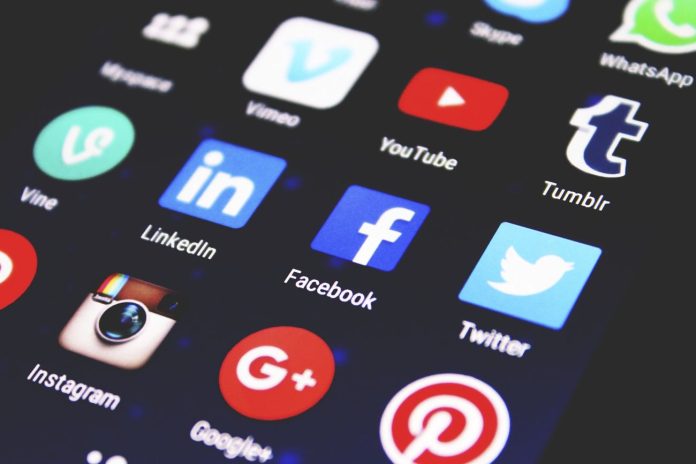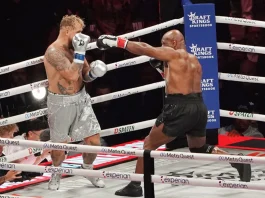Social media is a double-edged sword. While it offers unparalleled connectivity and exposure, it also has the potential to ruin careers when misused. From public figures to regular employees, no one is immune to the consequences of a poorly thought-out tweet or post. In this retrospective, we’ll explore some of the most infamous social media missteps, the lessons they offer, and strategies for safeguarding your digital footprint.
The Rise of Social Media as a Career Risk
Social media’s meteoric rise has made it a cornerstone of modern communication. Platforms like Twitter, Facebook, Instagram, and TikTok are used for everything from personal expression to professional networking. However, this visibility comes with risks:
- Amplification Effect
A single post can be seen by millions in minutes, amplifying both positive and negative messages. - Permanence of Content
Even deleted posts can live on through screenshots and archives. - Global Audience
Cultural nuances can turn an innocent comment into a global controversy.
High-Profile Cases: Careers Derailed by Social Media
Social media’s power to elevate or destroy reputations has never been more evident than in the cases of celebrities, public figures, and professionals whose careers were irreversibly damaged by online missteps. Let’s delve into these incidents to understand how they unfolded and the lasting lessons they provide.
Roseanne Barr

In 2018, Roseanne Barr, a household name and star of the hit TV show Roseanne, faced career-ending consequences over a single tweet. Barr, known for her polarizing political views and outspoken personality, posted a tweet comparing Valerie Jarrett, a former advisor to President Barack Obama, to an ape. The tweet read: “Muslim brotherhood & planet of the apes had a baby=vj.”

The backlash was immediate and intense. Social media users and public figures condemned the tweet as racist, sparking outrage across the political spectrum. Within hours, ABC, the network airing Roseanne, announced that the show was being canceled despite its massive ratings. Barr initially defended her statement as a “joke” and later blamed her actions on a sleep aid, Ambien. This prompted a now-infamous response from the drug manufacturer, stating: “While all pharmaceutical treatments have side effects, racism is not a known side effect of any Sanofi medication.”
The fallout was swift and severe:
- Barr’s reputation was irreparably tarnished.
- She lost her starring role and production credits for Roseanne, which was rebranded as The Conners without her involvement.
- Her online presence became a cautionary tale of how not to navigate public discourse.
Lesson: Barr’s case highlights the need for public figures to consider the far-reaching implications of their words. A single tweet, even one intended as humor, can obliterate years of professional success.
James Gunn: The Director Who Faced His Past

James Gunn, the acclaimed director of Marvel’s Guardians of the Galaxy, became the center of controversy in 2018 when decade-old tweets surfaced. The tweets, which contained offensive jokes about topics like pedophilia and rape, were dug up by internet users with the intent to tarnish his reputation. Gunn had already apologized for these tweets in the past, but their re-emergence in the age of “cancel culture” reignited public scrutiny.
Disney, facing public pressure, swiftly fired Gunn from directing the third installment of the Guardians of the Galaxy franchise. The decision polarized fans and Hollywood insiders:
- Supporters argued that Gunn’s old tweets did not reflect his current values or behavior.
- Critics maintained that such remarks were unacceptable, regardless of the passage of time.
In a surprising turn of events, Gunn’s dismissal sparked a wave of support from fans and the Guardians cast, who signed an open letter advocating for his reinstatement. After months of deliberation, Disney rehired Gunn, acknowledging his genuine remorse and commitment to growth.
Lesson: Gunn’s experience underscores the importance of addressing problematic behavior proactively. Public figures should periodically review and reflect on their digital footprints, ensuring past mistakes don’t resurface to harm their reputations.
Justine Sacco: The Tweet Heard Around the World
In 2013, Justine Sacco, a public relations executive, boarded a flight to South Africa and, before takeoff, tweeted: “Going to Africa. Hope I don’t get AIDS. Just kidding. I’m white!” What she intended as a satirical comment mocking privilege backfired spectacularly.

While Sacco was in the air, the tweet went viral, gaining traction through outrage on Twitter. By the time her plane landed, Sacco had been publicly vilified. The hashtag #HasJustineLandedYet trended globally, and her ill-conceived attempt at humor became a textbook example of how quickly online missteps can spiral out of control.
The consequences were immediate:
- Sacco was fired from her position at InterActiveCorp (IAC).
- Her personal life was thrust into the spotlight, resulting in widespread harassment and public shaming.
- Years later, Sacco admitted in interviews that the incident left lasting scars on her personal and professional life.
Her story became a central case study in Jon Ronson’s book So You’ve Been Publicly Shamed, which examines the long-term impact of public outrage.
Lesson: Sacco’s ordeal emphasizes the critical importance of context and audience. Even private jokes can take on a life of their own in the public sphere, leading to devastating consequences.
Kevin Hart: The Oscars Dream Dashed
In 2018, comedian Kevin Hart was announced as the host for the 91st Academy Awards, fulfilling a lifelong dream. However, the celebration was short-lived. Within days of the announcement, old tweets and comedy routines resurfaced, revealing past homophobic remarks. Hart faced immediate backlash from LGBTQ+ advocacy groups and the public.
Initially, Hart resisted calls to apologize, stating that he had already addressed the remarks years prior. However, the Academy gave him an ultimatum: apologize again or step down as host. Hart chose to resign from the hosting gig, citing the controversy as a distraction from the event’s purpose.
Although Hart later issued an apology and expressed remorse, the damage had been done:
- He lost the prestigious opportunity to host the Oscars.
- His reputation as a family-friendly entertainer was temporarily marred.
Lesson: Hart’s experience highlights how past statements, even those addressed previously, can resurface and impact current opportunities. Transparency and ongoing accountability are essential in maintaining a positive public image.
Anthony Weiner: A Political Career in Tatters

Anthony Weiner, a former U.S. congressman, faced repeated scandals stemming from his misuse of social media. The first major incident occurred in 2011, when Weiner accidentally tweeted a sexually explicit photo meant for a private message. The tweet, visible to his thousands of followers, sparked a media frenzy. Initially, Weiner denied the incident, claiming his account had been hacked. However, he later admitted to sending the photo and resigned from Congress.
Weiner attempted a political comeback in 2013 by running for mayor of New York City. However, during his campaign, new sexting allegations surfaced, further tarnishing his reputation. His eventual conviction for transferring obscene material to a minor resulted in imprisonment and permanently ended his political career.
Lesson: Weiner’s downfall illustrates the dangers of using social media irresponsibly and lying about mistakes. Honesty and discretion are vital in the digital age, especially for public figures.
These high-profile cases reveal the immense power of social media to shape public perception. Whether the offense is a single impulsive tweet or a pattern of poor judgment, the consequences can be career-ending. However, they also provide lessons on accountability, growth, and the need for individuals to navigate the digital landscape with care.
Cancel Culture: A Modern Phenomenon
Cancel culture has fueled the career-ending potential of social media. This phenomenon involves public backlash and boycotts against individuals or brands for offensive or problematic behavior. While it holds people accountable, it can also lead to:
- Mob Mentality: Individuals can face disproportionate consequences for minor offenses.
- Lack of Due Process: Accusations can lead to immediate backlash without a chance for explanation.
Resource: Psychology Today explains cancel culture.
Everyday Professionals: The Hidden Risks
Social media controversies aren’t limited to celebrities. Regular employees have faced repercussions for inappropriate posts, with some losing their jobs over:
- Sharing confidential workplace information.
- Posting offensive memes or comments.
- Criticizing employers publicly.
Case Study: Everyday Social Media Missteps
| Employee | Incident | Consequence | Lesson |
|---|---|---|---|
| Financial Analyst | Racist joke on Twitter | Immediate termination | Think before posting. |
| Teacher | Posting inappropriate photos | Revocation of teaching license | Maintain professionalism online. |
| Nurse | Mocking a patient in a TikTok video | Fired and blacklisted in the field | Protect patient confidentiality. |
How to Safeguard Your Online Reputation
To avoid falling victim to social media career risks, consider these tips:
Think Before You Post
Pause and evaluate whether your content could be misunderstood or offend someone.
Set Privacy Controls
Limit visibility of personal posts to trusted friends and family.
Audit Your History
Regularly review old posts to delete anything that may no longer align with your values.
Separate Personal and Professional Accounts
Keep work-related content on a professional profile and personal opinions on a private account.
Stay Informed
Understand the cultural sensitivities and potential impact of your posts.
Resource: Guide to managing online reputation.
The Role of Employers
Many companies have adopted stringent social media policies to prevent reputational damage. These policies often include:
- Social Media Training: Educating employees on responsible online behavior.
- Monitoring Employee Activity: Ensuring compliance with company standards.
- Crisis Management Plans: Preparing for potential PR disasters caused by employee actions.
The Broader Implications
The consequences of social media mistakes extend beyond careers:
- Mental Health Impact
Public shaming can lead to anxiety, depression, and other mental health challenges. - Personal Relationships
Friendships and family dynamics can be strained by controversial posts. - Legal Ramifications
Defamation or harassment claims can result from reckless online behavior.
Closing Thoughts: Navigating the Digital Landscape
Social media is a powerful tool that can shape or shatter careers. By understanding the risks and implementing thoughtful practices, individuals can harness its benefits without jeopardizing their futures. Remember, in the digital age, your online presence is as crucial as your professional skills.



